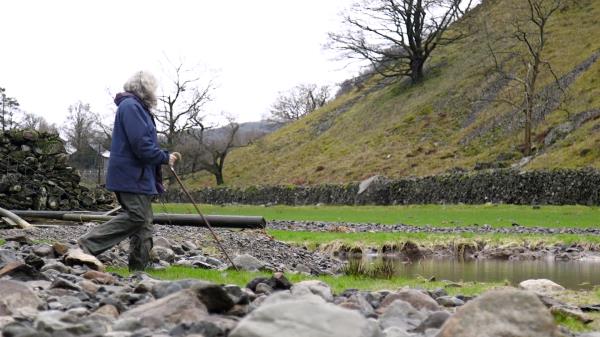To highlight the scale of the problem, the NFU has made a video (seen below) which has now been viewed over 60k times - of one of the worst hit farms to suffer every type of damage possible from the sheer force of the flood on 5 December.
NFU’s director of policy, Andrew Clark, said the organisation is still lobbying hard to get aid to flood stricken farmers, who are now facing an immensely difficult clean-up operation.
Mr Clark said: “The NFU welcomes a lot of the pragmatic decisions government agencies such as the Environment Agency and the RPA have taken to allow farmers to focus on the flood recovery operation. However, as part of a wider package of measures, the NFU is also asking for BPS part-payments to address cash flow issues, and lenient inspections by the RPA.
“We would also like to see the Government providing more resilient ways of managing flood risks that combine locally tailored solutions with an approach that can cope with more frequent and volatile weather.
“And we would also welcome an extension of the Farming Recovery Fund to support the recovery effort, which on some farms is well beyond the cost envisaged by the current Fund rules.”
At Low Bridge End Farm in Keswick, Cumbria, flood waters obliterated bridges, fences and dry stone walls and submerged the 50 acre farm’s lowlands. All of its fields were eroded and some have been left buried under tonnes of gravel. Over 20 chickens were lost in the flood and just three of their 20 geese survived.
The family-run farm has 60 breeding ewes, including a variety of Hebridean, Manx, Teeswater, Gotland and Lleyn sheep as well as 20 ducks, geese and chickens. The sheep have now been moved to another farm, making the start of the lambing season on 18 March even more difficult.
NFU member and livestock farmer, Sarah Chaplin-Brice, whose family has been on the farm for over a century, is calling on the Government to produce a more co-ordinated response to flood victims in the future.
She said: “It’s just horrendous; it’s a very disheartening sight to see basically what we’ve worked for all our lives just destroyed.
“Every single one of our fields was flooded by Storm Desmond. We’re looking at so much debris and damage we really don’t know where to begin with the clean-up. We’re just taking each day as it comes at the moment, it’s just really hard.”
Storm Desmond: A British Farm Dealing With the FloodSarah Chaplin-Brice, a livestock farmer who owns a small family-run farm in Cumbria says the damage caused by Storm Desmond has left her family feeling bereft. The farm suffered every type of damage possible from the sheer force of the water, which obliterated bridges, fences and stone walls and flooded the lowlands. All of the farm’s fields were eroded and some have been left buried under tonnes of gravel.British farmers must not be forgotten - we're calling for more resilient ways of managing flood risks, locally tailored solutions and an approach that can cope with more frequent and volatile weather.
Posted by NFU Online on Thursday, January 14, 2016
